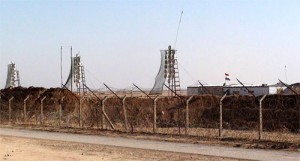IRAN FOCUS
Washington, Dec. 06 – Lawmakers from both sides of the aisle in the United States plan to hold a hearing on Wednesday into the responsibility of the State Department towards a camp of Iranian exiles in Iraq which is feared to come under attack by Iraqi forces as US forces leave the country by the end of the year.
Camp Ashraf, home to some 3,400 members of Iran’s main opposition movement Mujahedin-e Khalq (PMOI / MEK), was attacked in April by the Iraqi military, leaving 36 residents killed and hundreds injured. The MEK claims the attack was carried out at the behest of Iran. It was the second deadly assault on the camp. In July 2009, at least 11 residents were killed and 500 wounded when Iraqi forces tried to overrun the camp.
Iraq’s Prime Minister Nuri al-Maliki has vowed to close Camp Ashraf before the end of the year, which the residents fear would be a prelude to a massacre by Iraqi forces.
On Wednesday, the House of Representatives Subcommittee on Oversight and Investigations and the Subcommittee on the Middle East and South Asia plan to hold a joint hearing, entitled: “Camp Ashraf: Iraqi Obligations and State Department Accountability”.
Daniel Fried, the Special Advisor on Ashraf at the State Department, and Barbara Leaf, the Deputy Assistant Secretary for Iraq at the department’s Bureau of Near Eastern Affairs will be questioned by lawmakers, according to a statement by the office of Congressman Dana Rohrabacher (R-CA) who chairs the Subcommittee on Oversight and Investigations. Ambassador Lincoln Bloomfield, former Assistance Secretary of State for Political Military Affairs and Col. Wesley Martin (Ret.), former Camp Ashraf commander, are the other witnesses.
The situation at Camp Ashraf has also been a source of major concern in the upper chamber of the U.S. Congress. Last month, Senators John McCain (R-AZ) and Lindsey Graham (R-SC) wrote to Secretary of State Hillary Clinton, urging her to “press the Iraqi government to extend its deadline for closing Camp Ashraf so that UNHCR can complete its work of assessing the refugee status of each of the camp’s residents”.
